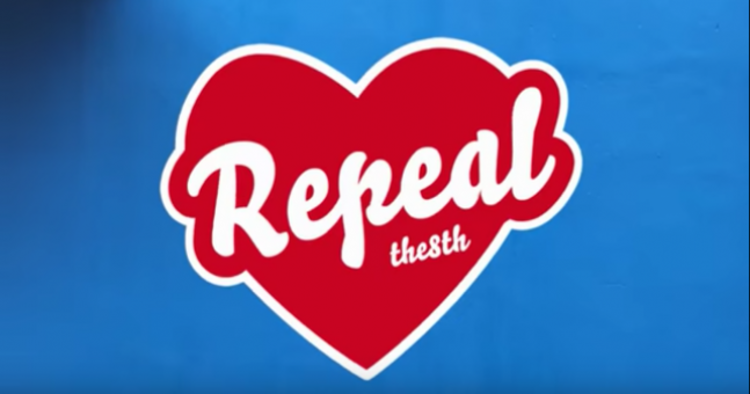Reading An Triail in 2018 | Why Mairead Ní Ghrada’s play is still relevant.
“Mharaigh mé mo leanbh de bhrí gur cailín í. Fásann gach cailín suas ina bean. Ach tá m’iníon saor. Ta sí saor. Ní bheigh sí ina hóinsín bhog ghéilliúil ag aon fhear. Tá sí saor”
“I murdered my daughter because she is a girl. Every girl grows up to be a woman. But my daughter is free. She is free. She won’t be any man’s silly yielding girl. She is free.”
These words open An Triail, Mairead Ní Ghrada’s 1964 play.
The story tells of Máire’s affair with the village schoolmaster, who is married, disastrously ending in an unplanned pregnancy. She is cast out by her family as soon as they discover her pregnancy and she rejects an abortifacient, and has little choice but to work as a housekeeper before enduring a spell in a Magdalene laundry which a social worker has referred her to. Upon refusing to give up her child, she is dismissed as a lost cause and even this cold comfort is removed. After failing to hold down a job cleaning toilets in a factory and being made homeless by the collapse of her tenement accommodation, Máire finally loses hope and murders both herself and her daughter as an act of mercy.
All the while, she has never revealed who the father is to anyone despite knowing he has remarried following the death of his wife, and started another family.
An Triail was a hit when it was first performed in 1964, and found resonance in an age of growing concern over poverty, housing standards and the mistreatment of women. However, it was never published in Irish during the author’s lifetime, and has found itself in the unfortunate position of being mostly read in the classroom as part of the Leaving Cert curriculum. As is to be expected, such a difficult and controversial text isn’t a big hit with teenagers.
However, the play is certainly relevant today. The students studying An Triail in classrooms across Ireland today will, for the most part, turn 18 in 2018. There’s a strong likelihood that the first chance they will get to vote will be in a referendum on whether or not to retain the 8th Amendment. Even if they don’t vote, they will come of age in an Ireland likely to be shaped by the cultural impact of this referendum for years to come. Sadly, the play’s critique of an Irish society defined by the poverty and stigma experienced by its most vulnerable is no relic of a bygone age a la Péig. What the generation reading it now should think about is whether we can make it so.

Aturnae 2: “Trí phunt sa tseachtain. Ní mór é chún bean agus leanbh a chothú.”
Bainisteoir: “Is mó é ná an gnáthráta pá dá leithéidí”
Attorney 2: “Three pounds a week. That isn’t much to support a woman and her child”
Manager: “It’s more than the average wages for such work.”
These words constitute a manager’s defense for paying an unmarried mother three pounds a week for work cleaning toilets in his factory. £3 in 1964 would be worth €67.05 when adjusted for inflation. This works out at a shilling per hour, or €6.70 in today’s money. The worst bit is that he may well have been telling the truth. The huge gender pay gaps of the 1960s aren’t as much of a thing of the past as we’d like to think. Women are still slightly more likely to fall into poverty than men even after welfare payments are taken into account, and 852 lone-parent families were homeless on Christmas Day in 2017.
[perfectpullquote align=”full” bordertop=”false” cite=”” link=”” color=”#3535DB” class=”” size=””]All the while, the father of the child is protected by Máire’s silence and starts a new family.[/perfectpullquote]
Mathair: “Ná bítear ag féachaint ormsa. Ní ormsa is cóir an milleán a chur. Thóg mise í go creidiúnach agus go críostúil. Cad eile a d’fheadfainn a dhéanamh di?”
Sean: “Náirigh sí sinn. Bhí orm éirí as an tsagartóireacht. Ní fheadfainn aghaidh a tabhairt ar mo chomrádaithe sa choláiste…”
Liam: “Bhris Beití an cleamhnas a rinneadh dúinn. Níor fhéad sí an phoiblíocht a sheasamh.”
Mother: “Don’t look at me. You shouldn’t blame me for this. I raised her responsibly and in a Christian way. What else could I do?”
Sean: “She’s an embarrassment. I had to abandon the priesthood. I couldn’t show my face to the other students.”
Liam: “Beití broke off our engagement. She couldn’t stand the scrutiny.”
It’s too easy to dismiss the families, nuns and priests who sustained the systemic abuse of single mothers and their children in the Ireland of the 1960s as monsters. They were in many cases, and treated the poor and unfortunate as something to be hidden from view or disowned entirely. However, Máire’s family are the victims of much larger problems than their own attitudes. The stigma and shame which Máire’s unplanned pregnancy brings upon them makes it nearly impossible for them to be fair to her – their lives are drastically affected as well. Her mother’s best efforts to raise her daughter have ended in tragedy, whilst her brothers Sean’s career and Liam’s engagement have collapsed under the strain of the stigma brought upon their family. Although They have cast her into a life of poverty and despair by ostracizing her, society’s judgement has also ruined their futures.
All the while, the father of the child is protected by Máire’s silence and starts a new family with impunity. Like many others, the culture of silence and intimidation which sees Máire keep her secret enables him to remarry without having to admit the truth to his new wife or to support his child. In fact, Máire is never even asked by her social worker to reveal the father so as to force him to take responsibility.
On average, nine women a day travelled from the Irish Republic to the mainland UK for an abortion in 2016. Yet they have only recently begun to speak out about their experiences, and stories such as that of two women live-tweeting their journey remain few and far between.
It’s only starting to end now, and the beginning stages of the Repeal Campaign have seen a break in the silence. A TD such as Bríd Smith speaking out about her abortion in the 1980s could well represent the beginning of a badly needed national conversation about how women have been so badly mistreated and how we’ve reproduced the same culture of silence as enabled the Magdalene asylums in our own time.
Sadly, even the Repeal of the 8th won’t solve any of these problems on its own. The overall status of women may have changed drastically, but we are still demonstrably capable of making the victims of institutionalized sexism invisible through intimidation and fear of reprisal.

Seanín: “Bhris sí na rialacha. An te a bhriseann na rialacha an chluiche cailltear ann é.”
Seanín: “She broke the rules. Those who break the rules of the game lose it.”
It should be noted that at no point in the play does Máire break a single law. She isn’t obliged to give her child up for adoption or be dispatched to the Magdalene laundry by a Garda. She wants to keep her baby, so any prohibition on abortion is almost irrelevant to her case. Yet she is nevertheless described as having broken the rules of society, simply for being the victim of its hypocrisies and invisible structures. The father of her child escapes without blame, the social worker is permitted to abandon her case as a hopeless one, and her family blames her for their subsequent misfortunes.
We may have come far from being a society which actively isolates pregnant women into institutions. Whilst we currently are in one of the worst housing crises in history, even the worst homes here have yet to collapse and kill their inhabitants as in the 1960s. But in other, less visible respects Irish society hasn’t changed as much as we would like to think. Women are still paid considerably less than men, and nearly a thousand lone-parent families were homeless at Christmas 2017. Those whose lives have been affected by the emergency of an unplanned pregnancy have had to go abroad or fear a prison sentence, and it is only very recently that they have begun to break their silence en masse about their experiences.
In light of this, An Triail shouldn’t be read as a set Leaving Certificate text from the thankfully bygone age of mother-and- baby homes. It should instead be seen as a text which is as relevant to us as ever, and readers should consider whether we’re still a society that blames its victims for breaking unwritten rules, and just how many women out there now are in the same situation as Máire, and the many like her in that era and ours.

